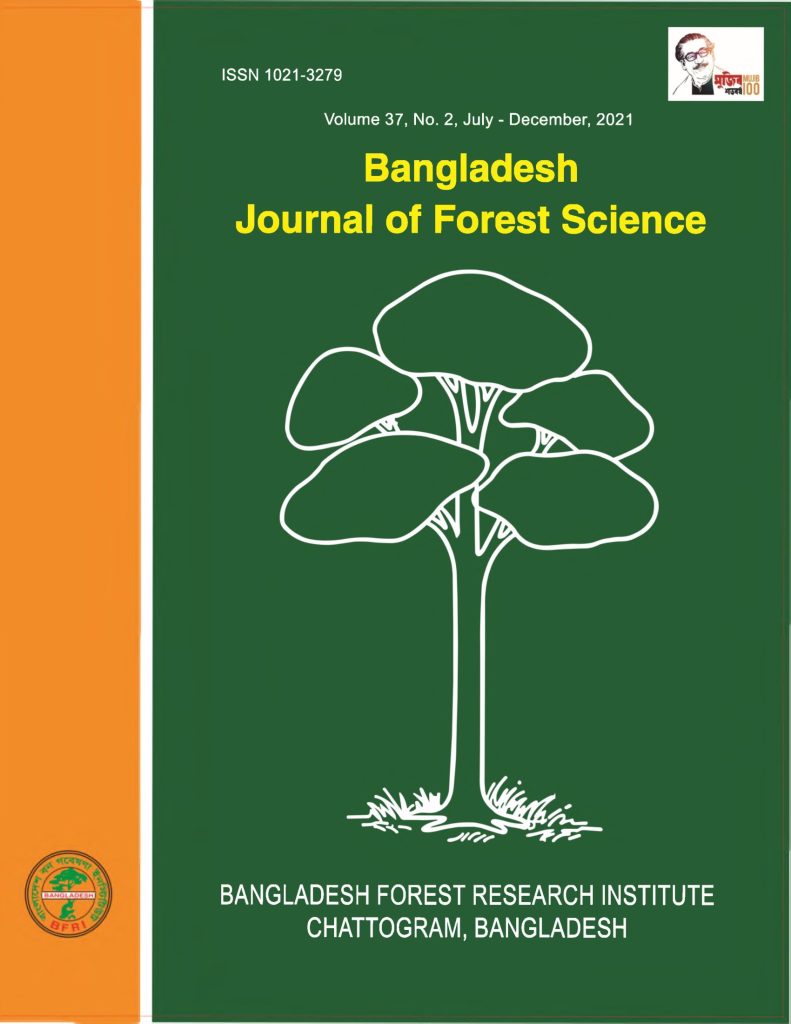Strength properties are very important for paper grading; usually recycled fibre produce low grade paper. However, it is not easy to produce quality paper from recycled paper without addition of virgin pulp. In this study, the paper was made by mixing new pulps in different proportions with recycled pulp from used paper to explore their quality, and hence their various physical and mechanical properties were tested. A mixture of newsprint books and whiteprint books (1:1) was used to make recycled pulp through hydrapulper (a type of pulp-making machine). The reaction conditions were: temperature 50°C, duration 30 minutes, pulp consistency 10%, sodium hydroxide (NaOH) 0.8% (w/w), sodium silicate (Na9SiO3) 0.8% (w/w), detergent 0.15% (w/w) and hydrogen peroxide (H2O2) 0.8%(w/w). The resulting pulp was thoroughly washed with tap water and the adhesive and plastic substances were removed with the help of a screening machine. Tossa jute fibre was used to make new pulp because its bastfibre and pulp quality is excellent. The fibres were first to cut into 1.5-2.0 inches and then pulp was made using the neutral sulfite anthraquinone (NS-AQ) method with an alkaline rate of 20% at 175°C. The test papers of 8 cm diameter and 1.25 cm thickness were made by mixing the new pulp with the recycled pulp in seven proportions (90:10, 80: 20, 70: 30, 65:35, 60:40, 55:45 and 50:50).Then the physical and mechanical properties of the test papers such as freeness (rate of water removal from the pulp), tear index, tensile index, burst index, folding endurance were determined. Strength factor (Tear index x Tensile nidex) of produced paper are 406.29(90:10), 482.05(80:20), 588.15(70:30), 701.55(65:35), 757.26(60:40),745.53(55:45) and 820.83(50:50). The results showed that the quality of paper was increased with the increased ratio of jute fibre. It was also observed that “A” grade paper was obtained from a minimum 35% mixture of Jute pulp.
Welcome to the Bangladesh Journal of Forest Science (BJFS) – a leading platform for advancing the knowledge and understanding of forest science in Bangladesh and beyond. Established with a commitment to excellence, BJFS serves as a cornerstone for researchers, practitioners, and enthusiasts dedicated to the sustainable management and conservation of forest ecosystems.



